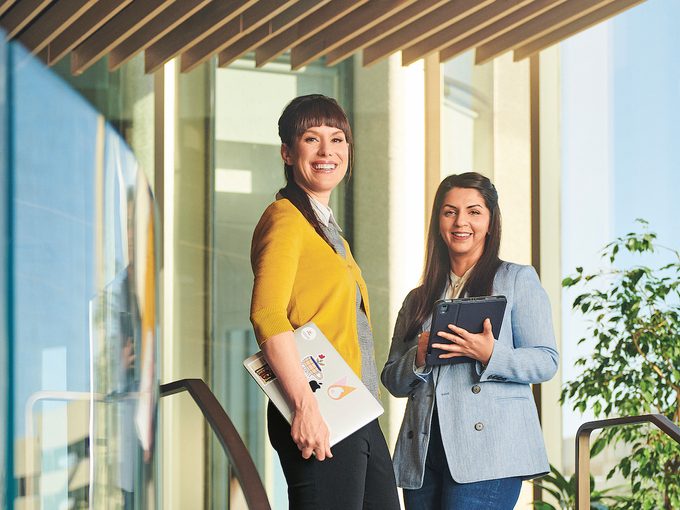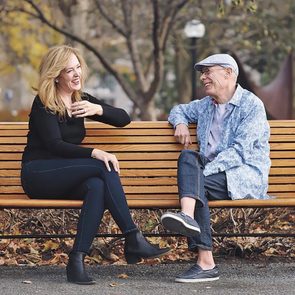This Organization is Helping Seniors Become Computer Savvy
Through Connected Canadians, volunteer mentors teach tech skills to older adults—for free.

Winnipeg’s Murray Dufton could muddle his way around a computer. The 75-year-old often used one as a project manager in northern Manitoba. But since he retired, he couldn’t quite keep up with rapidly changing technology. In early 2021, he spotted an e-newsletter in his inbox from a local community centre. Connected Canadians, an Ottawa-based organization that went national during the pandemic, provided senior citizens with tech help from volunteer mentors. To Dufton, it sounded like a great opportunity.
Emily Jones Joanisse and Tasneem Damen decided to start Connected Canadians in 2018. The pair of friends found it rewarding to help the seniors in their lives overcome tech challenges. Jones Joanisse, who is director of experiential learning at Carleton University’s Innovation Hub, and Damen, an independent software architect, wondered, what if they could scale that support? “Our goal is to teach seniors how to search for information and to learn,” says Jones Joanisse, “and then to become confident in their ability to pick up new technology skills on their own.”
Canadian seniors are increasingly using newer technologies, with the majority now owning a smartphone and using the Internet daily. Since much of our lives are lived online—from shopping to social catch-ups to doctors’ appointments—a person without the savvy to navigate it can quickly feel isolated. Tech use has only increased since the pandemic. A 2020 survey by Environics Research showed 23 per cent of seniors now make video calls on their smartphones, twice as many as in 2019. Seniors’ use of social media is also on the rise. About 72 per cent of those over 65 also said they felt comfortable using current technology.
Jones Joanisse and Damen would like to see that number go even higher, and among older seniors, too. Many who ask them for help are in their 80s; the oldest person the group has assisted is now 102. There’s no limit on the number of sessions a senior can access. Common questions include help figuring out a new phone, solving printer problems, connecting on Zoom and setting up email. The organization’s coaches have grown from Jones Joanisse and Damen, who still volunteer today, to nearly 100 active mentors.
“Most people would roll their eyes and glaze over and say, ‘Oh no, not another old person!’” says Dufton. But in 10 video-call sessions, he learned how to synchronize his iPad, computer and smartphone, plus how to better save and organize his files. One big reason why Connected Canadians has been so successful, adds Jones Joanisse, is that they encourage their mentors to respect and care for the senior, and not treat them like a five-year-old. Mentors are trained to imagine they are helping the elderly mother or father of their boss—and to remember that each senior has plenty of life experience.
Kate Oakley, 70, of Ottawa says she started having tech trouble when she “tried to come into the 21st century.” A retired researcher who now dedicates much of her time to creating artwork, Oakley owned an Amazon Echo. She wanted to use it to play music and keep track of her grocery list. She compares Connected Canadians to going to the library. “You have a knowledgeable librarian, and they guide you to the right path,” says Oakley. “They don’t do it for you, but they help you fix it yourself, so you aren’t always dependent on them.”
Today, she confidently gives a command to her Amazon Echo, and jazz fills the room. That’s how she now starts most days, with what feels like an endless stream of music, tailored to her very own taste.
Next, find out if Canada’s 3G network shutdown will affect you.






